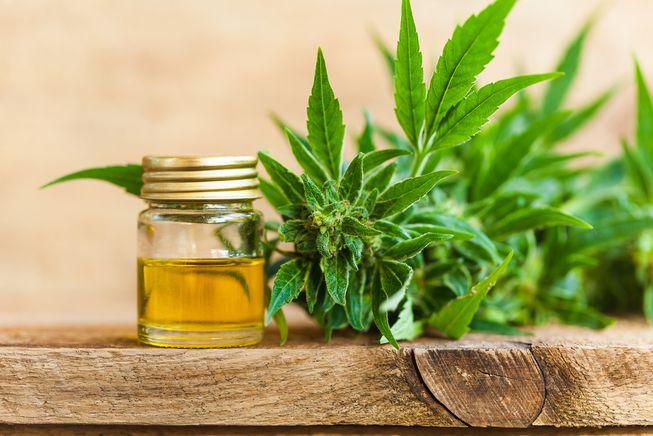The 2018 Farm Bill, or the Agriculture Improvement Act of 2018, was put into law on Dec. 20, 2018, and it made all hemp and hemp-derived products officially removed from Schedule I status. Schedule I Status previously made hemp legally listed as a drug that has potential for abuse and was thus illegal for any person to distribute, manufacture, posses or dispense. However, with the 2018 Farm Bill’s passage, hemp-derived cannabidiol (CBD) is now in demand.
CBD is a kind of phytocannabinoid from the cannabis plant, and it lacks the euphoric effects and “high” that its frequent complement, THC, another phytocannabinoid, has. CBD has risen in popularity as its being dubbed a “cure-all miracle drug,” according to Psychology Today. Its medical uses include pain relief, cancer eradication and the diminishment of the effects of anxiety disorders. Nonetheless, the U.S. National Library of Medicine says that there is “insufficient evidence” for “anecdotal claims” on CBD’s alleged benefits, with the exception of its impact on insomnia and anxiety.
CBD is commonly distributed as an oil or cream, and while it is illegal to market it as a dietary supplement, many health food stores still sell it, especially in the form of an oil. It is then utilized within a vape pen, as an oral supplement or as a topical or spray treatment.
While people do consume CBD oil and advertise it for consumption, CBD is illegal as a dietary supplement because it is unregulated by the Food and Drug Administration (FDA). It is solely listed as a “drug ingredient” and “not a dietary supplement.” The FDA has thus issued several warnings that CBD products could make unproven claims about CBD’s benefits.
In fact, this FDA warning could be warranted because a 2017 JAMA study revealed that nearly 70 percent of 84 CBD products sold online over- or under-stated its product’s CBD concentration. Additionally, the study revealed that approximately 20 percent of CBD products had a trace of THC in them that was unadvertised and can have adverse effects to those of CBD oil.
While CBD oil cannot be utilized as a dietary supplement, it is an ingredient in drugs such as Epidiolex, which was the first FDA-approved drug to use CBD as a drug ingredient. It was approved in June 2018.
Epidiolex is an oral supplement taken in order to treat forms of epilepsy in patients that are of two years of age or older. Upon its approval, FDA Commissioner Scott Gottlieb, M.D. said in a press release, “This approval serves as a reminder that advancing sound development programs that properly evaluate active ingredients contained in marijuana can lead to important medical therapies. And, the FDA is committed to this kind of careful scientific research and drug development.”
While CBD’s legal forms and alleged advantages are somewhat unclear, its demand is expected to grow. According to Statista, a statistics portal, CBD oil sales increased from $108.1 million to $262.2 million from 2014 to 2016, and it is expected to grow to $813.2 million in 2019 due to its recent legal status change and versatile forms of application.





buy pure cbd hemp oil Chicago | May 16, 2019 at 6:47 am
Laws regarding to usage of CBD oil and hemp regarding products are different. They are banned in many nations and they are legally allowed to use and even some nations putting on list to legalize the hemp for future uses. Many global medical teams have been researching on hemp can be beneficial for medicinal realm and helps in curing many diseases.